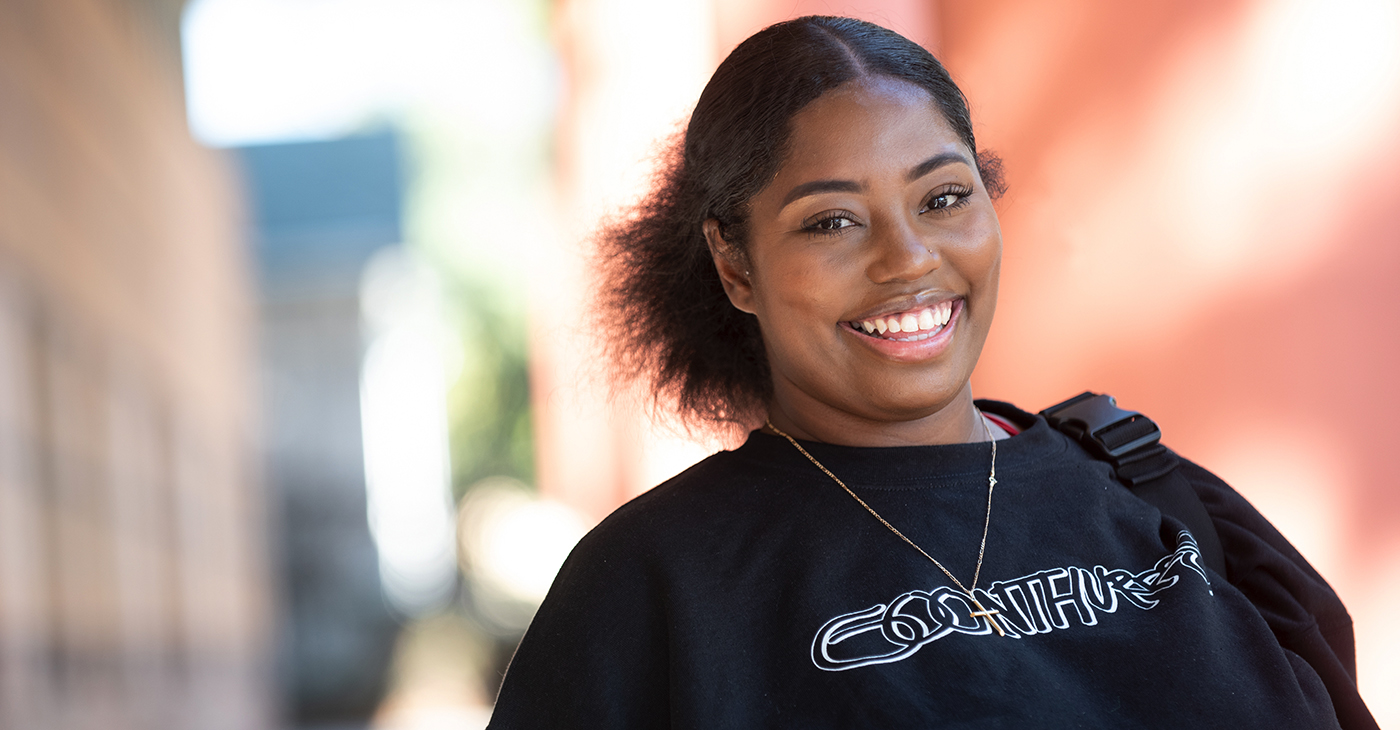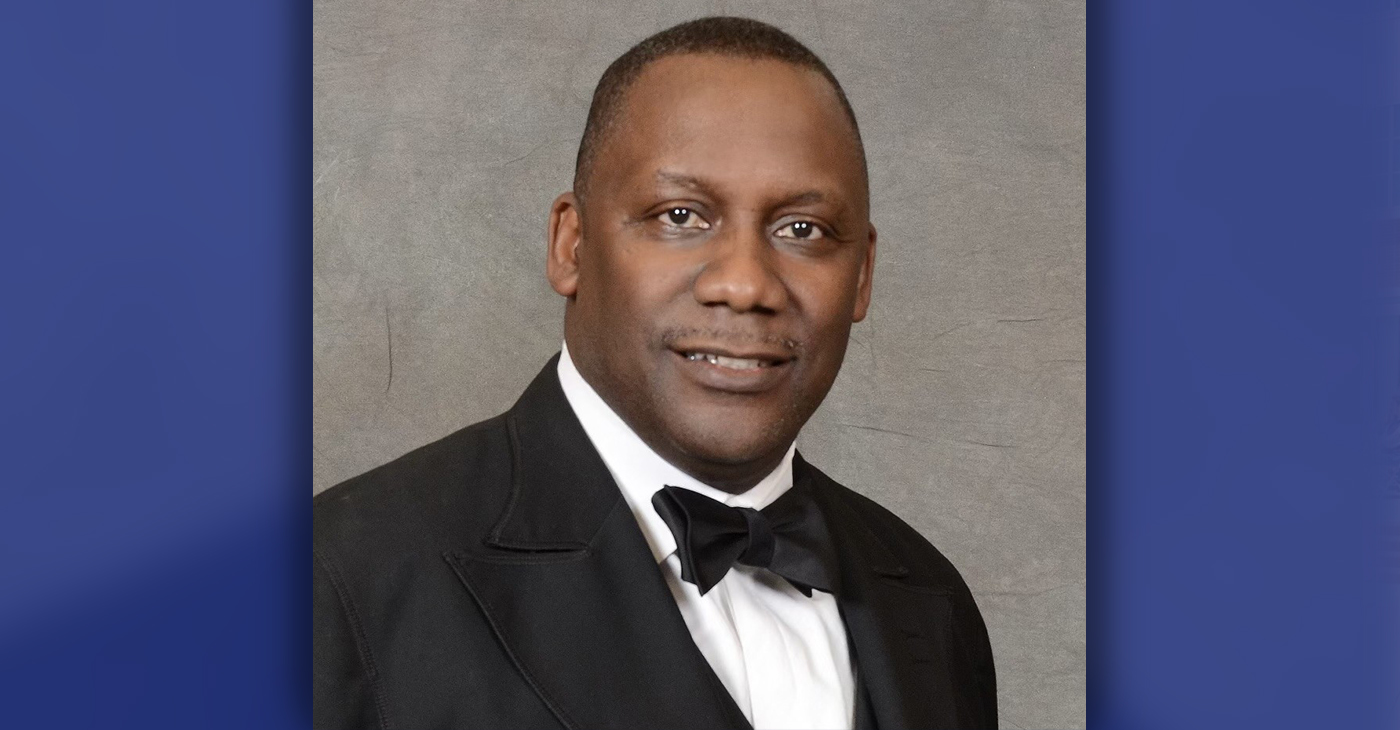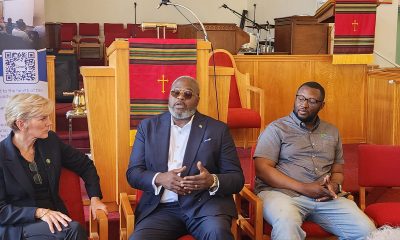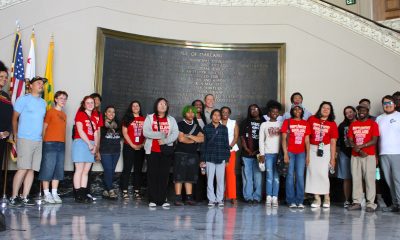Bay Area
Sickle Cell Clinical Trial Aims to Cure Disease by Correcting Patient’s Mutated Gene
Sickle cell disease is a genetic blood disorder that affects the structure and function of hemoglobin, reduces the ability of red blood cells to transport oxygen efficiently, and progresses to a chronic vascular disease that affects approximately 100,000 Americans and millions worldwide, with a disproportionate effect on the Black community.

Benioff Children’s Oakland Receives $17M in Grants to Launch 4-Year Study Using CRISPR to Eradicate Sickle Cell Mutation
UCSF Benioff Children’s Hospital Oakland has received the largest research trial grant in its history to launch an innovative clinical trial that aims to cure sickle cell disease.
The study, which plans to enroll its first patient by the middle of 2022, will use CRISPR-Cas9 gene-editing technology on patients’ own blood stem cells to correct the mutated gene that causes the debilitating disorder.
Benioff Oakland researchers have received $17 million to support the 4-year trial, in two grants of $8.4 million from the California Institute for Regenerative Medicine (CIRM) and $8.6 million from the NIH Cure Sickle Cell Initiative, supported by the National Heart, Lung, and Blood Institute (NHLBI).
This trial is the first to apply CRISPR-Cas9 technology in humans using a non-viral therapy to correct the mutation that causes sickle cell disease and is part of a UC research consortium led by UCSF with UCLA and UC Berkeley.
Researchers are recruiting patients for treatment in Oakland and Los Angeles, beginning with up to six adults with sickle cell disease. If found to be safe and effective, it will expand to enroll three adolescents aged 12 to 17 years old. Seven patients are expected to be treated in Oakland and two at UCLA.
It is the first-time clinical researchers have attempted to correct a harmful beta-globin gene mutation in a patient’s own cells with non-virally delivered CRISPR gene-correction tools, according to Mark Walters, MD, a professor of pediatrics at UCSF and principal investigator of the clinical trial and gene editing project.
“This therapy has the potential to transform sickle cell disease care by producing an accessible, curative treatment that is safer than the current therapy of stem cell transplant from a healthy bone marrow donor,” Walters said. “If this is successfully applied in young patients, it has the potential to prevent irreversible complications of the disease.”
Sickle cell disease is a genetic blood disorder that affects the structure and function of hemoglobin, reduces the ability of red blood cells to transport oxygen efficiently, and progresses to a chronic vascular disease that affects approximately 100,000 Americans and millions worldwide, with a disproportionate effect on the Black community.
This clinical study continues BCH Oakland’s commitment to treating and finding a cure for sickle cell disease. The Comprehensive Sickle Cell Disease Center was created at the hospital in 1973 to provide expert diagnosis, treatment and long-term health management for children and adults with sickle cell disease.
Now known as the BCH Oakland Sickle Cell Center of Excellence, it is recognized as having one of the largest and most comprehensive sickle cell programs in the Western United States.
This trial will combine CRISPR technology developed at Innovative Genomics Institute (IGI) – a joint UC Berkeley-UCSF initiative founded by Nobel Laureate Jennifer Doudna – with UCLA’s expertise in genetic analysis and cell manufacturing, as well as its clinical excellence in the field, and nearly 50 years of expertise at Benioff Children’s Oakland in sickle cell care, including cord blood and marrow transplantation, and gene therapy.
“The use of CRISPR gene editing to fix the mutation causing sickle cell disease in each patient’s own blood-forming stem cells required the development of new methods to produce more than 100 million cells per patient that are gene-corrected, healthy and pure,” said Donald Kohn, MD, medical director of the UCLA Human Gene and Cell Therapy Facility. “Previous research studies were limited to producing ½ to 2 million genetically corrected cells, so this represents a significant increase in scale.”
The disease is caused by a single-letter change, or mutation, in human DNA. This trial will use CRISPR genome editing to correct this mutation directly. The project team from UCSF, the IGI, and UCLA have developed CRISPR_SCD001, a patient-specific blood stem cell therapy that has been modified by a CRISPR-Cas9 nuclease to stimulate repair of the sickle mutation.
In the current trial, the patient’s blood stem cells will be extracted and sent to UCLA’s gene manufacturing lab to be processed using electrical pulses that create temporary pores in their membranes. These pores allow the CRISPR-Cas9 platform to enter the cells and travel to the nucleus, where it corrects the sickle cell mutation before the cells are reintroduced to the patient.
“The goal is to develop a cure that is not just safe and effective, but one that is affordable by to those who need it most,” Doudna said. “There have been a lot of promising developments in recent years with CRISPR-based therapies for sickle cell and other genetic diseases, but it’s essential that we have studies like this that can help us create truly accessible cures.”
As part of its legacy, BCH Oakland was recognized for establishing the first not-for-profit sibling donor cord blood bank, leading to children being cured of sickle cell disease and other blood diseases.
Among its many accomplishments in treating sickle cell disease, BCH Oakland scientists studied and received FDA approval for the drug Voxelotor to improve hemoglobin levels and reduce anemia and hemolysis in sickle cell patients.
Going forward, the UCSF research team is hoping to use expanded resources under development in the UCSF Living Therapeutics Initiative as this new treatment is expanded, including the potential to manufacture the investigational cell therapy product at UCSF.
Lorna Fernandes is the senior public information representative at the UCSF Office of Communications and Public Affairs.
Activism
Oakland Post: Week of July 24 – 30, 2024
The printed Weekly Edition of the Oakland Post: Week of July 24 – 30, 2024

To enlarge your view of this issue, use the slider, magnifying glass icon or full page icon in the lower right corner of the browser window. ![]()
Activism
Oakland Post: Week of July 17 -23, 2024
The printed Weekly Edition of the Oakland Post: Week of July 17 -23, 2024

To enlarge your view of this issue, use the slider, magnifying glass icon or full page icon in the lower right corner of the browser window. ![]()
Bay Area
Op-Ed Senate Bill 966 Threatens Health Equity in East Bay
My East Bay community is struggling to get by. A proposed State Senate bill would set us back even further. Serving the East Bay community has been my life’s work and my greatest joy. After leaving the Bay Area to complete my seminary, I returned home to found The Community Church in Oakland. From the outset of my time as the church’s pastor, I have been guided by the belief that my service must extend beyond the pulpit, because the health and economic needs of my community are so great. Our church has organized free food banks, COVID-19 testing clinics, and a housing and re-entry program for those suffering from addiction.

By Rev. Dr. Lawrence E. VanHook
Special to the Post
My East Bay community is struggling to get by. A proposed State Senate bill would set us back even further.
Serving the East Bay community has been my life’s work and my greatest joy. After leaving the Bay Area to complete my seminary, I returned home to found The Community Church in Oakland.
From the outset of my time as the church’s pastor, I have been guided by the belief that my service must extend beyond the pulpit, because the health and economic needs of my community are so great. Our church has organized free food banks, COVID-19 testing clinics, and a housing and re-entry program for those suffering from addiction.
Through my service, I have seen the challenges that our community members are facing. Oakland, my hometown, has the third-highest rate of violent crime in the state. The local economy is strained. Oakland-based businesses are leaving our community because they’re struggling to get ahead.
Both East and West Oakland has disproportionately high rates of respiratory illness due to heavy air pollution. While our local efforts have brought some aid to those in need, we are also counting on our state elected officials to help us address the systemic health disparities afflicting the community.
Chief among the health concerns of community members is having reliable and affordable access to prescription drugs. Equitable access to medications gives us the peace of mind that we can keep ourselves and our families healthy and safe. Our community should not have to choose between paying rent or purchasing prescriptions.
Unfortunately, rather than taking action to combat soaring prescription drug prices, some California lawmakers are pushing legislation that could raise patient costs at the pharmacy counter.
The Legislature is currently considering SB 966, a bill backed by special interests that would undercut the few tools we have to keep prescription drug costs contained, letting big drug companies increase their prices, profiting on the backs of working families – some of whom already live paycheck to paycheck.
SB 966 would target the fundamental programs through which small businesses, unions, and government health programs are able to offer their employees and members quality and affordable healthcare. Millions of Californians rely on these plans to obtain essential medications at the lowest-possible cost.
The bill would make it illegal for employers and unions to incentivize the administrators of their prescription drug plans to negotiate for the lowest possible cost for prescriptions. Right now, small businesses and unions can choose to pay these administrators more for taking on big drug companies and securing discounts – a choice that will be outlawed under this bill.
As a result, employers will have no leverage to stop big drug companies from setting sky-high prices, disproportionately impacting working families.
As these health costs quickly add up, employers will have little choice but to pass the increases down to their employees. That means California patients will see higher healthcare costs and co-pays.
From my perspective, most concerning is that the bill would exacerbate the health disparities impacting my community and other underserved populations. If SB 966 becomes law, the most vulnerable may be forced to skip prescription doses, stop filling their prescriptions, and avoid essential care.
By rejecting this cash grab by big drug companies, our state elected officials can send a clear message that they stand with the community, patients, and working families.
We cannot afford SB 966.
Rev. Dr. VanHook is the founder and pastor of The Community Church in Oakland and the founder of The Charis House, a re-entry facility for men recovering from alcohol and drug abuse.
-

 Arts and Culture3 weeks ago
Arts and Culture3 weeks agoRooted in Tradition: The Intricate History of Black Hair Braiding
-

 Bay Area4 weeks ago
Bay Area4 weeks ago“I Will Not Be Bullied,” Says Oakland Mayor Sheng Thao
-

 Bay Area2 weeks ago
Bay Area2 weeks agoPG&E Increases Rates While Bay Area Households Are Struggling to Stay Afloat
-

 Business3 weeks ago
Business3 weeks agoGov Newsom: Raising Fast Food Minimum Wage to $20 Pays Off as Jobs Multiply in Industry
-

 Activism4 weeks ago
Activism4 weeks agoOpponents of Mayor Sheng Thao Are Calling on Her to Resign Following FBI Raid
-

 Bay Area2 weeks ago
Bay Area2 weeks agoJuneteenth Mass Shooting Suspect Charge with Multiple Counts of Felony Assault by Alameda County DA Pamela Price
-

 Community1 week ago
Community1 week agoHundreds Come to Jehovah’s Witnesses’ Assembly Hall for Three-Day Program of ‘Good News’ in Fremont
-

 Activism4 weeks ago
Activism4 weeks agoOakland Coliseum Sale to AASEG: A Model for Community Development and Inclusion






















































